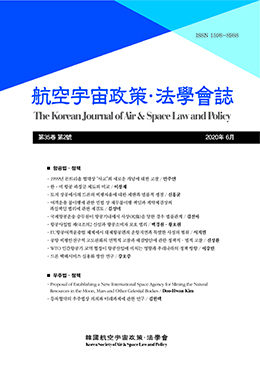항공기 부품 교역의 무관세화 및 자유화를 위하여 WTO 민간항공기 교역 협정이 1995년 WTO 출범 시 WTO 설립협정 부속서 4 복수국간 무역협정으로 별도 체결되었으며, 현재 미국, EU 등 33개국이 가입되어 있으나 우리나라는 가입하지 않고 있다.
민간항공기 교역 협정의 주요 내용은 적용 대상 물품, 관세 및 기타 과징금의 철폐, 무역에 대한 기술장벽에 관한 협정의 적용, 정부에 의한 민간항공기 조달 지시의 금지, 수입 또는 수출 수량 제한이나 허가조건의 적용 배제, 보조금 및 상계조치에 관한 협정의 적용, 민간항공기 교역위원회, 본 협정 관련 문제의 협의 및 분쟁해결 등에 관하여 규정하고 있다.
현행 관세법은 2018년 12월 31일 제89조 제6항이 신설되어 항공기 부품 수입 시 관세감면율이 2019년 5월부터 단계적으로 축소되어 2026년에 관세감면제도 가 폐지될 예정이다. 이에 따라서, 민간항공기 교역 협정이 항공산업에 미치는 영향을 살펴보면, 첫째 항공운송산업에 미치는 영향으로서, 항공기 부품 관세감면제도가 폐지되는 2026년부터 국내 항공운송업계의 관세 부담액은 연간 약 1,600억 원에 이를 것으로 전망되는데, 민간항공기 교역 협정에 가입 시 국내 항공운송업계는 항공기 부품을 무관세로 수입할 수 있게 됨으로 3-8%의 수입관 세를 부담하지 않아도 될 것이다.
둘째 항공정비(MRO)산업에 미치는 영향으로서, 항공기 부품 관세감면제도가 단계적으로 축소 내지 폐지될 경우 국내 엔진정비와 부품정비 분야에서 해외 외 주비가 2018년 기준 12,903억 원에서 더욱 증가할 것으로 예상되는데, 민간항공 기 교역 협정에 가입 시 항공정비업계가 항공기 부품을 무관세로 수입할 수 있게 되어 해외 외주비를 절감할 수 있을 것이다.
항공산업의 경쟁력을 확보하기 위한 항공기 부품 교역 자유화 정책 방향을 제시하면, 첫째 FTA를 활용한 관세감면으로서, 항공기 부품 수입 시 FTA를 활용하여 관세감면 혜택을 받기 위하여는 원산지 증명 발급을 거부하고 있는 미국, EU 등의 해외 거래업체로부터 이를 확보하여야 하며, 또한 항공기 부품의 해외 임가공 수입에 대한 관세 감면 규정이 미비한 한-싱가포르 및 한-EU FTA 협정문의 규정을 개정 보완할 필요가 있다고 할 것이다.
둘째 민간항공기 교역 협정의 가입 추진으로서, 전술한 FTA를 활용한 관세감면 방식은 모든 항공기 부품의 원산지 증명 발급이 곤란하며, 또한 해외임가공 물품의 수입 관세 감면 규정이 미비한 한-싱가포르 및 한-EU FTA규정의 개정 보완 작업에 진전이 없다는 한계가 있으므로, 항공기 부품 교역의 무관세화를 위하여는 민간항공기 교역 협정의 가입을 추진하는 것이 타당하다고 할 것이다.
셋째 관세법 상 항공기 부품 관세감면제도의 개선으로서, 항공기 부품 교역의 자유화를 위한 민간항공기 교역 협정 가입 시까지는 상당기간의 소요가 예상되므로 관세법 제89조 제6항에 의한 항공기 부품의 관세감면제도가 계속되도록 별도 개선조치가 필요하다고 할 것이다.
결론적으로 우리나라가 WTO 민간항공기 교역 협정에 가입하여 항공기 부품 교역에 대한 무관세화와 자유화를 달성함으로써 우리 항공산업이 외국 항공산 업과 공정하게 경쟁할 수 있는 환경을 조성하고 경쟁력을 확보할 수 있도록 하 여야 할 것이다.
For customs-free and liberalization on the trade of aircraft parts, the WTO Agreement on Trade in Civil Aircraft was separately concluded as plurilateral trade agreement at the time of launching WTO in 1995, and currently 33 countries including the United States and the EU are acceded but Korea does not. Major details of the Agreement on Trade in Civil Aircraft include product coverage, the elimination of customs duties and other charges, the prohibition of government-directed procurement of civil aircraft, the application of the Agreement on Subsides and Countervailing Measures, and the consultation on issues related to this Agreement and dispute resolution.
Article 89 paragraph 6 of the current Customs Act was newly established on December 31, 2018, and the tariff reduction rate for imports of aircraft parts will be reduced in stages from May 2019 and the tariff reduction system will be abolished in 2026. Accordingly, looking at the impact of the Agreement on Trade in Civil Aircraft on the aviation industry, first, as for the impact on the air transport industry, an tariff allotment of the domestic air transport industry is expected to reach about 160 billion won a year from 2026, and upon acceding to the Agreement on Trade in Civil Aircraft, the domestic air transport industry will be able to import aircraft parts at no tariff, so it will not have to pay 3 to 8 percent import duties. Second, as for the impact on the aviation MRO industry, if the tariff reduction system for aircraft parts is phased out or abolished in stages, overseas outsourcing costs in the engine maintenance and parts maintenance are expected to increase, and upon acceding to the Agreement on Trade in Civil Aircraft, the aviation MRO industry will be able to import aircraft parts at no tariff, so it will reduce overseas outsourcing costs.
If the author proposes a policy direction for the trade liberalization of aircraft parts to ensure competitiveness of the aviation industry, first, as for the tariff reduction by the use of FTA, in order to be favored with the tariff reduction by the use of FTA, it is necessary to secure the certificate of origin from foreign traders in the United States and the EU, and to revise the provisions of Korea-Singapore and Korea-EU FTA. Second, as for the push of acceding to the Agreement on Trade in Civil Aircraft, it would be resonable to push the acceding to Agreement on Trade in Civil Aircraft for customs-free on the trade of aircraft parts, as the tariff reduction method by the use of FTA has limits. Third, as for the improvement of the tariff reduction system for aircraft parts under the Customs Act, it is expected that there will take a considerable amount of time until the acceding to the Agreement on Trade in Civil Aircraft, so separate improvement measures are needed to continue the tariff reduction system of aircraft parts under Article 89 paragraph 6 of the Customs Act.
In conclusion, Korea should accede to the WTO Agreement on Trade in Civil Aircraft to create an environment in which our aviation industry can compete fairly with foreign aviation industries and ensure competitiveness by achieving customs-free and liberalization on the trade of aircraft parts.


